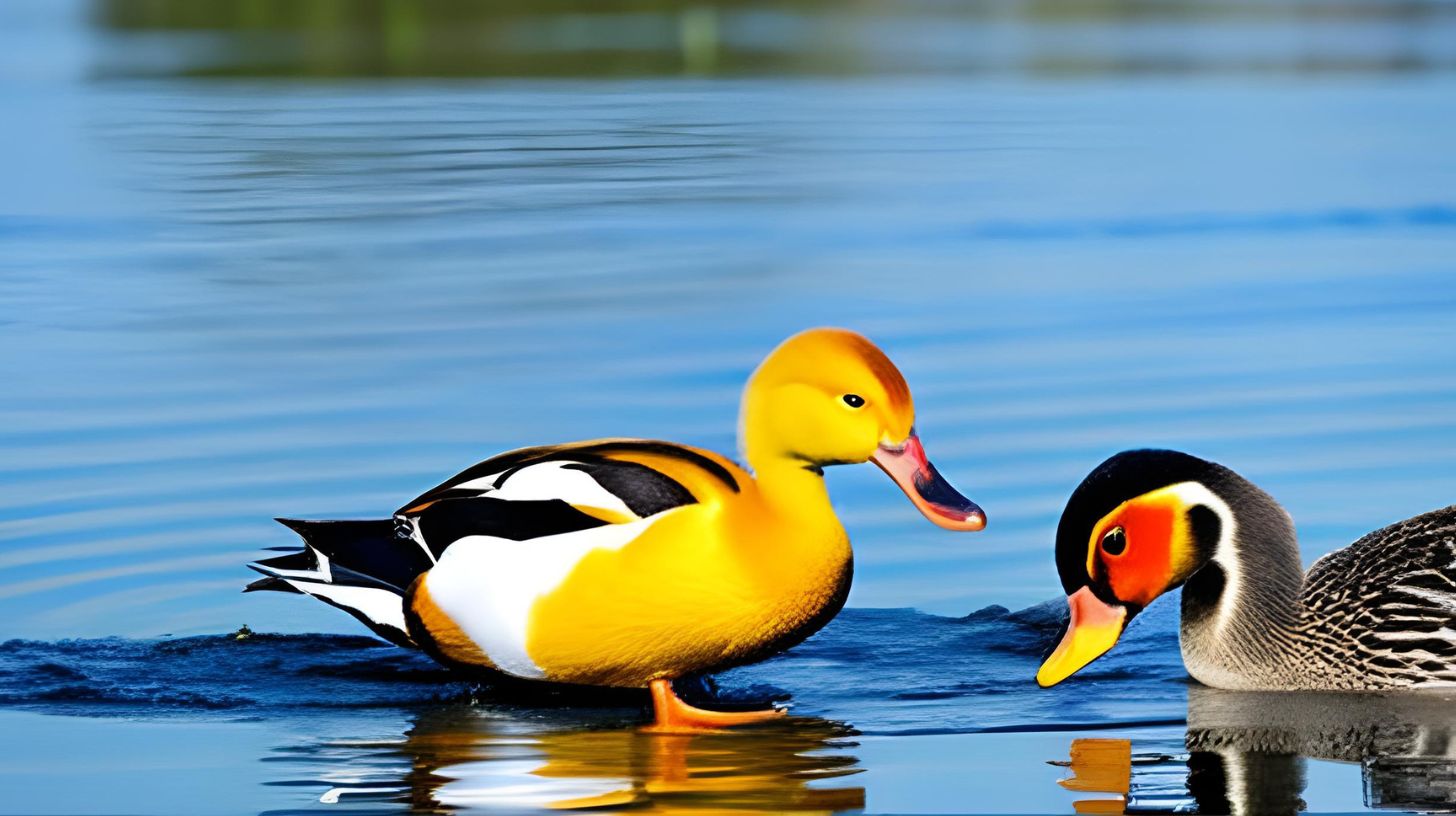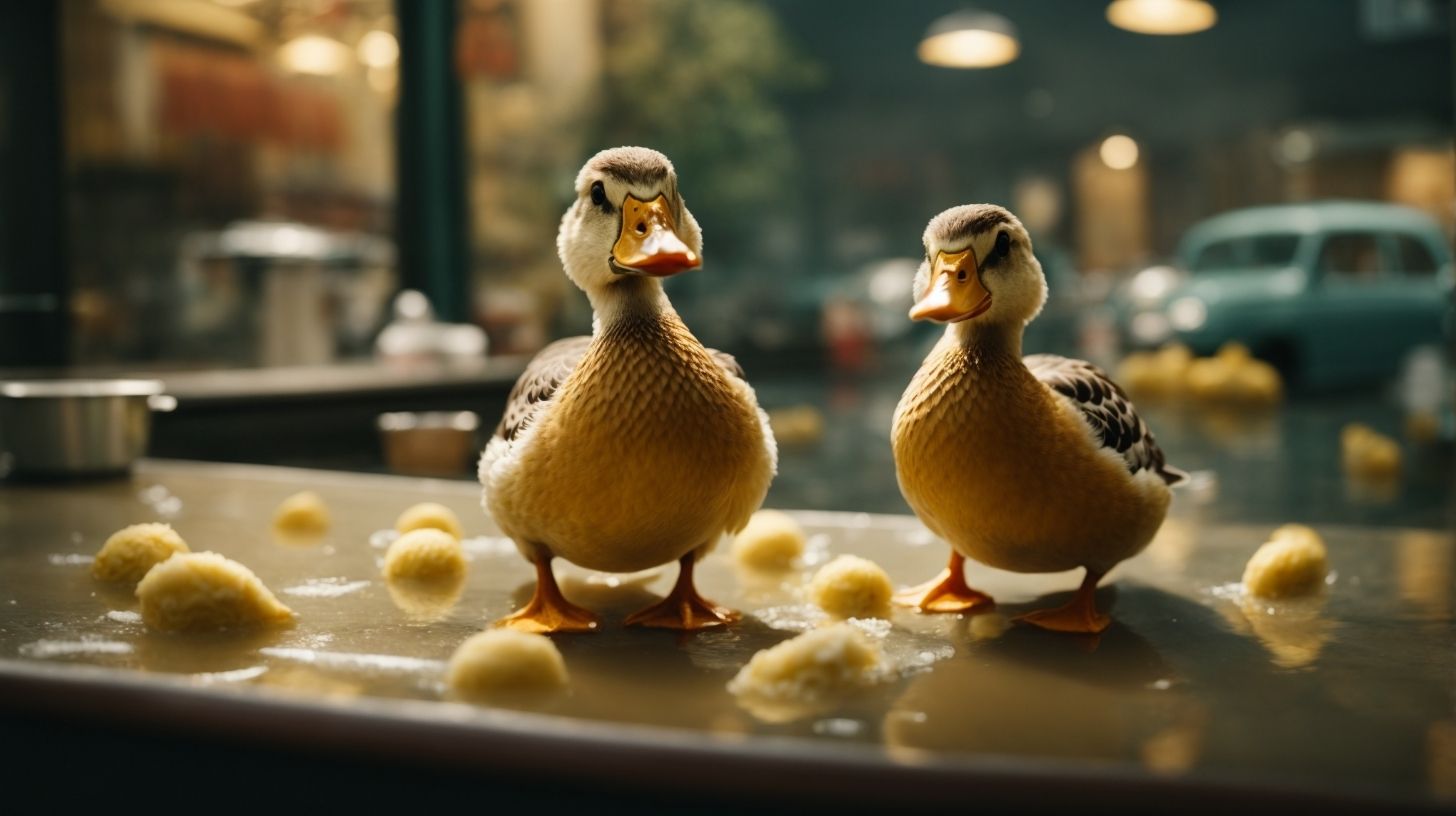Are Uncooked or Cooked Rice Safe for Ducks?
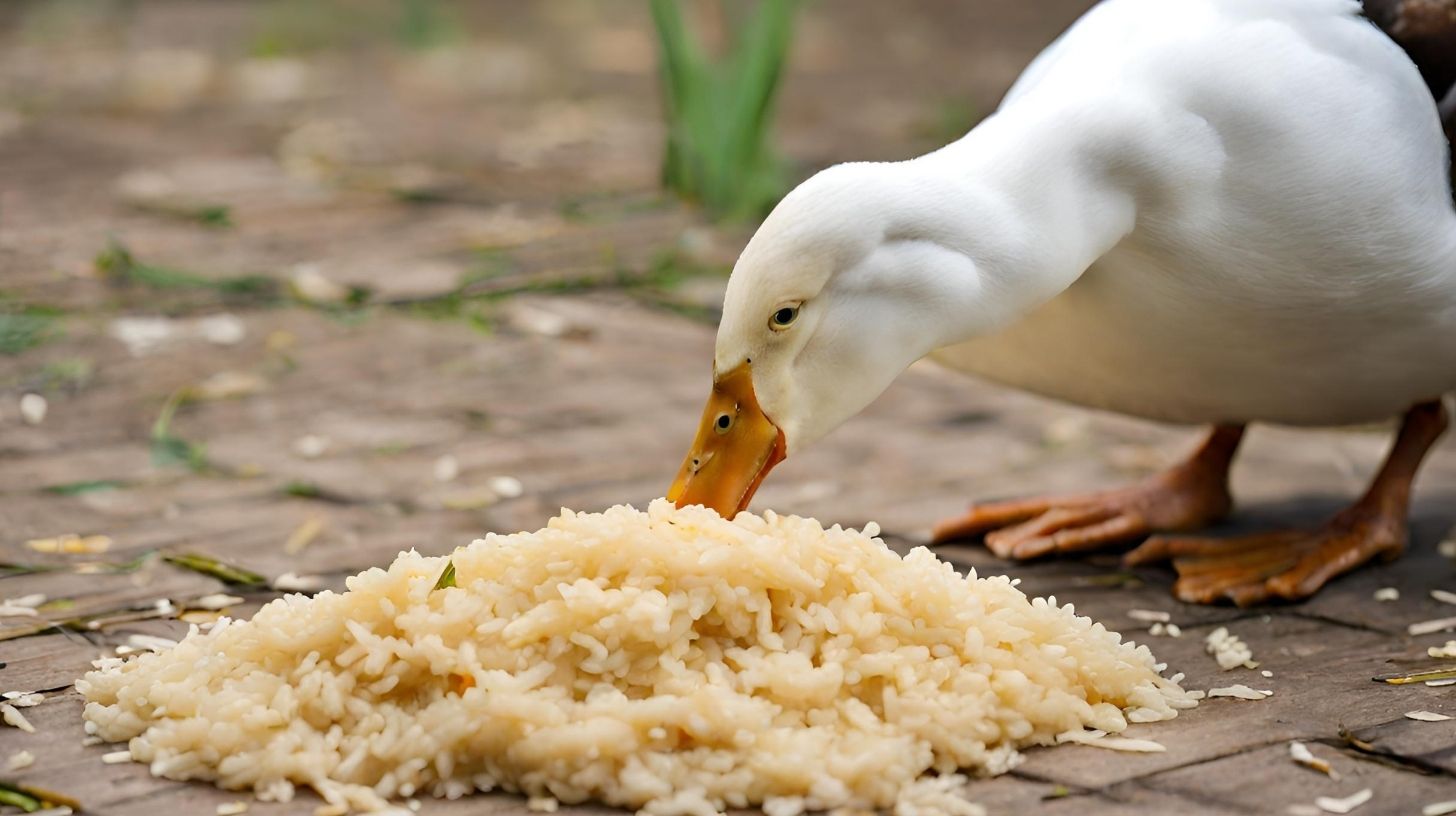
Table of content:
- Is Uncooked Rice Safe for Ducks?
- Is Cooked Rice Safe for Ducks?
- Rice Nutrition for Ducks
- Health Risks of Feeding Ducks Uncooked Rice
- Are Alternatives to Feeding Ducks Rice Safer?
- Are There Any Benefits to Feeding Ducks Rice?
- Are Wild Ducks or Pet Ducks Better Able to Eat Rice?
- How Much Rice Can Ducks Safely Eat?
- FAQs About Feeding Ducks Rice
- Conclusion
Rice is a common food around the world, and many people think of sharing scraps or leftovers with ducks they encounter. But can ducks eat uncooked rice? Feeding ducks human food comes with precautions, and uncooked rice poses risks.
Key Takeaways:
- Uncooked rice generally expands in ducks’ stomachs and can cause health issues. Cooked rice is safer.
- Small amounts of uncooked rice are unlikely to harm ducks, but it’s best avoided.
- Rice provides carbs but lacks vitamins and minerals ducks need. It should not be a diet staple.
- Cooked rice risks retaining bacteria if improperly prepared; ensure it’s fully cooked before feeding ducks.
- Consider safer alternatives like oats, corn, peas, seeds, vegetables, and commercial duck feed.
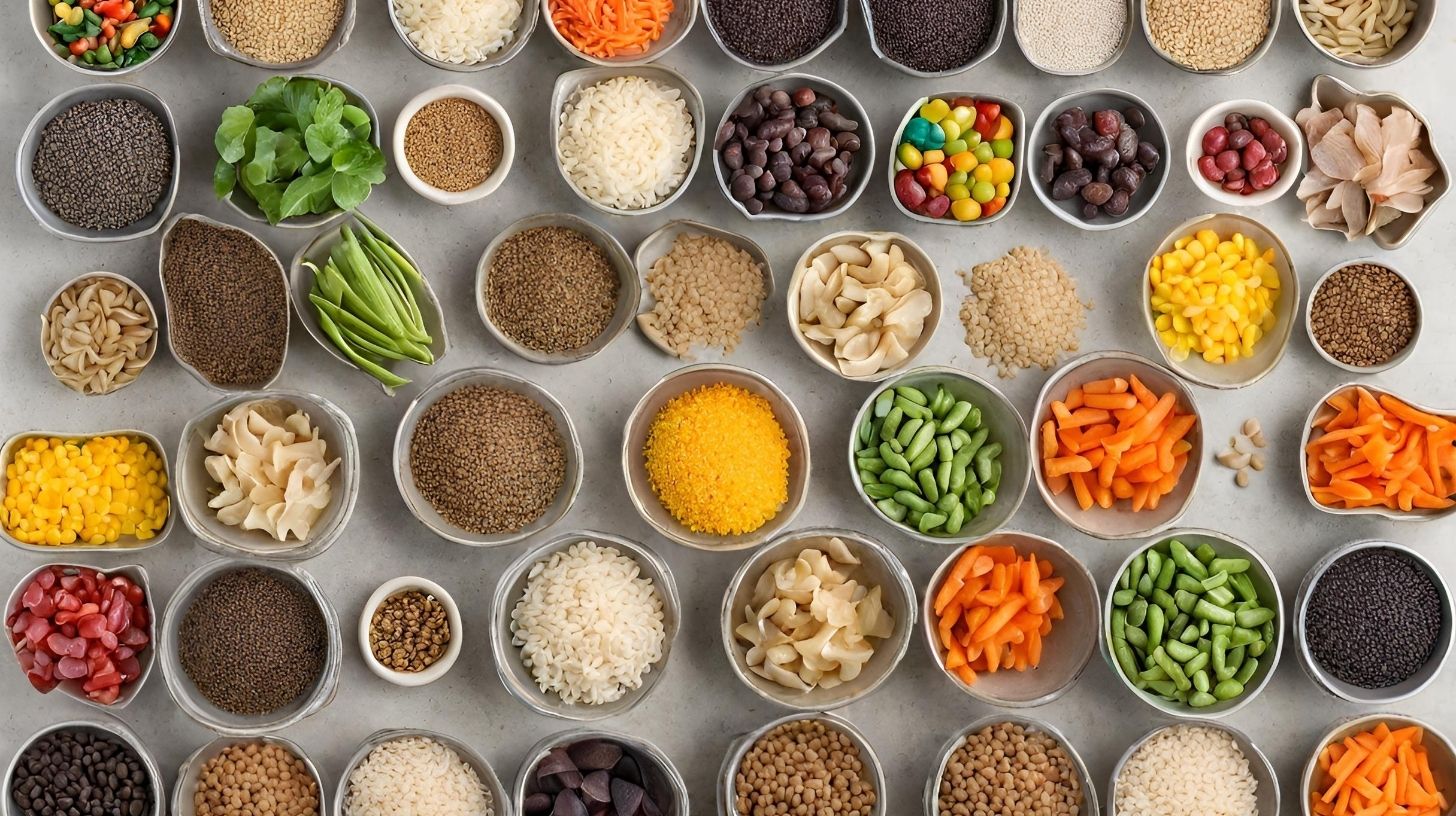 Is Uncooked Rice Safe for Ducks?
Is Uncooked Rice Safe for Ducks?
Is uncooked rice bad for ducks? Whole, raw, uncooked rice generally expands in ducks’ digestive systems. The dry grains rapidly soak up water and swell in size.
Ducks lack teeth to properly chew and break down larger food particles in their mouths. Their digestive systems aren’t designed to easily pass larger pieces of uncooked rice.
When excessive amounts of uncooked rice get ingested by ducks, it can:
- Cause painful blockages or obstructions in the esophagus or digestive tract.
- Irritate the lining of the gastrointestinal (GI) system.
- Prevent proper nutrient absorption.
- Lead to malnutrition and starvation.
- Create life-threatening impactions.
These risks mainly apply to larger amounts of dry, uncooked rice. Small quantities occasionally will likely pass through most ducks without issue. But it’s still not recommended.
Some people report success soaking or sprouting rice before feeding ducks. This makes the grains softer and easier to digest. Yet this doesn’t eliminate all risks. Cooked rice or alternatives make much safer options.
Is Cooked Rice Safe for Ducks?
Feeding ducks properly cooked rice reduces risks of it expanding inside ducks once consumed. The grains absorb water during cooking, then pass more easily through ducks’ digestive systems.
Yet even cooked rice has some precautions:
- Improperly cooked rice can harbor bacteria that causes food poisoning. Ensure rice is fully cooked before feeding ducks.
- Rice lacks important vitamins and minerals ducks require for health. It should not comprise a main dietary staple.
- All breads and grains fed to ducks should be limited to small portions and fed alongside other nutritious options.
Overall, well-cooked plain white or brown rice makes a safe occasional snack or treat for ducks in moderation. Never solely feed ducks cooked or uncooked rice long-term.
Cooked Rice Feeding Tips
When preparing rice for ducks:
- Use fresh, dry rice stored properly. Discard old rice.
- Rinse rice thoroughly before cooking.
- Follow cooking directions correctly for full cooking and absorption.
- Let rice cool fully before feeding to ducks.
- Refrigerate leftover cooked rice; use within 3-5 days.
Avoid moldy, undercooked, or reheated rice, which can harbor bacteria.
Feed small amounts of cooled, properly cooked rice infrequently alongside ducks’ regular varied diet. About 1-2 tablespoons of cooked rice once or twice a week helps prevent overfeeding.
Rice Nutrition for Ducks
Here’s how plain white or brown rice compares nutritionally to ducks’ dietary needs:
- High in carbohydrates for energy.
- Contains only trace amounts of fats and protein.
- Lacks essential vitamins like A, D, E, and K.
- Deficient in minerals like calcium, phosphorus, and more.
- Water-soluble rice helps ducks stay hydrated.
Rice provides energy from carbohydrates. But ducks require diverse foods for complete nutrition. They need adequate protein for development, plus vitamins and minerals for optimal health that rice lacks.
While not toxic, rice offers low nutritional value for ducks. It provides empty filler calories without other benefits. Ducks that fill up on rice can miss out on more nutritious options.
For a balanced diet, ducks need variety. Rice should only occasionally supplement a diverse diet of bugs, plants, veggies, fruits, proteins, grains, and commercial duck feed.
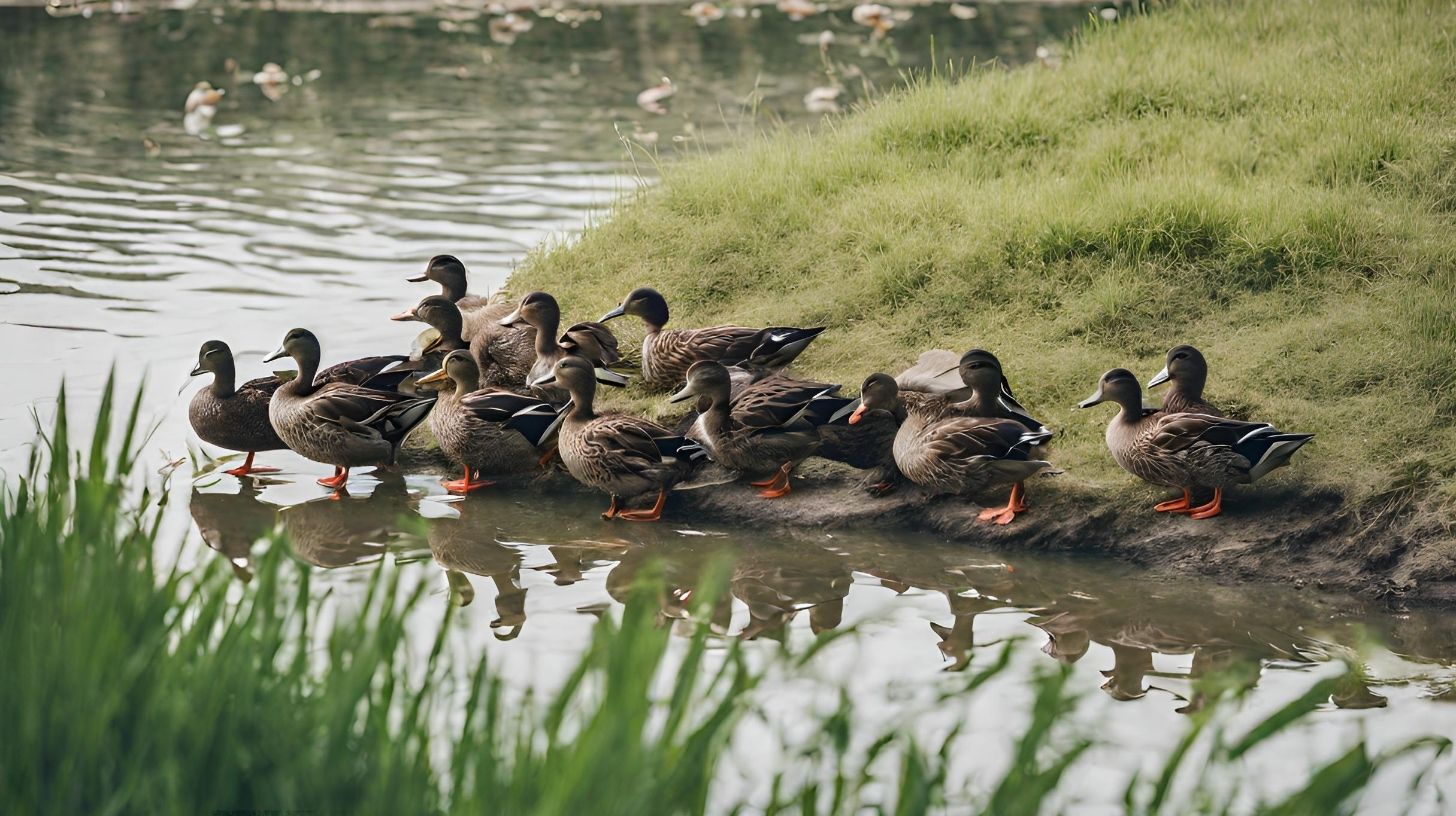 Health Risks of Feeding Ducks Uncooked Rice
Health Risks of Feeding Ducks Uncooked Rice
Why exactly does uncooked rice pose risks to ducks’ health? Here are the main concerns:
Blockages
Rice expands rapidly when it contacts water internally. The dry grains can almost instantly double or triple in size.
Ducks lack teeth and struggle when ingesting larger pieces of food like excess rice. The crop and esophagus are narrow passages that can clog.
Blockages prevent a duck from swallowing food or water. They can lead to choking, dehydration, malnutrition, or starvation if left untreated.
Impactions
Further down in ducks’ digestive tracts, mass amounts of swelling rice can create painful obstructions or life-threatening impactions.
Hardened impactions require surgery by avian veterinarians to remove. They can be fatal if untreated. Even non-obstructing amounts of rice may irritate ducks’ sensitive digestive linings.
Malnutrition
Excess uncooked rice fills up ducks but provides very few vitamins, minerals, fats, proteins, or other nutrients. Ducks focused on filling up on empty rice calories can become undernourished.
Plus, any irritation or discomfort in ducks’ gastrointestinal tracts caused by rice may reduce their ability to digest and absorb what nutrients are consumed.
Bacteria
Dry, uncooked rice fed to ducks also carries risks of passing along bacteria like salmonella or E. coli. This mainly applies to large quantities consumed regularly, not occasional small amounts.
Improperly cooked rice also risks bacterial contamination. Ensure any rice fed to ducks is fully cooked and still fresh.
As prey animals, ducks typically resist showing outward signs of illness or discomfort until severe. Any symptoms of vomiting, wheezing, lethargy, or loss of appetite after feeding require prompt avian vet examination.
Are Alternatives to Feeding Ducks Rice Safer?
Many alternatives make safer, healthier options to feed ducks than uncooked or cooked rice. Some better choices include:
- Commercial duck feed: Specially formulated to deliver 100% balanced nutrition for ducks.
- Cooked oats: Provide more protein and nutrients than rice. cook fully and let cool before feeding.
- Bird seed: A mixture of grains, vegetable matter, nuts, fruits. Choose unsalted.
- Cracked corn: Cooked, dried corn provides carbohydrates.
- Peas: Fresh or frozen peas offer more nutrients than rice. Defrost before feeding.
- Grapes/berries: Chop larger grapes to duck-safe sizes. Berries carry vitamins.
- Chopped veggies: Try leafy greens, carrots, peas, sweet potato, squash, pumpkin innards.
- Greens: Duck-safe options like kale, spinach, swiss chard, lettuce provide nutrients.
- Chopped fruit:banana, mango, berries, melon. Avoid citrus, pits.
- Insect/bug treats: Ducks love occasional mealworms, crickets, or greens with bugs.
- Eggs: Cooked, cooled, scrambled eggs make great treat.
- Cracked seeds: Sunflower, flax, pumpkin. High in fats and protein.
- Duck feed pellets: Nutritionally designed for ducks.
Again, all human foods should only supplement a duck’s primary balanced diet. Avoid overfeeding.
Are There Any Benefits to Feeding Ducks Rice?
Can ducks eat rice? In very small amounts, plain white or brown rice won’t harm ducks and poses lower risks of causing blockages. Some benefits rice offers ducks include:
- High complex carbohydrates provide energy. Ducks lead active lives and rice can offer quick fuel.
- The grains help supplement fiber to aid digestion.
- Rice’s soft texture when soaked makes it easier to swallow for ducks compared to dry, hard pellets.
- For domestic pet ducks, a few bites of rice can be a safe special treat in moderation. Some enjoy it.
- Cooked rice contains more than 70% water content. This supports hydration needs.
- Rice is low cost and many people have it on hand to conveniently feed ducks.
Despite these limited benefits, rice remains low in nutrients and risks expand in waterfowl’s digestive systems. Much safer alternatives exist to feed ducks. Rice should comprise only an extremely occasional, small treat – not a dietary staple.
Are Wild Ducks or Pet Ducks Better Able to Eat Rice?
Both wild and domestic ducks face potential risks from overfeeding on rice. However, several factors make wild ducks generally less suited to consume any rice:
- Smaller bodies than many domestic duck breeds.
- Less resilient digestive systems than well-cared-for pet ducks.
- Forage a wide diet needed for health; filling up on empty rice risks malnutrition.
- Lack veterinary care if sickened or obstructed by rice.
- Less accustomed to digesting human foods.
Pet ducks under proper care may have slightly stronger digestive systems. But rice poses no benefits nutritionally, so smart duck owners avoid it.
Neither wild nor pet ducks should consume rice frequently or in large portions. Healthy ducks naturally self-regulate their food intake. But overabundant offerings of rice can quickly lead to over-consumption.
Both wild and domesticated ducks show best health outcomes on diverse diets of species-appropriate foods they’d naturally eat. Rice rarely makes up any part of a natural duck diet.
How Much Rice Can Ducks Safely Eat?
No established guidelines exist on exact safe portion sizes of rice for ducks. Again, moderation and infrequency are key.
As general rules:
- 2-3 small bite-sized pieces per duck once or twice a week seems a safe rice treat amount.
- For a daily meal, ducks should get no more than 1-2 tablespoons cooked rice alongside ample greens, fruits, proteins, veggies, and grains for balance.
- Avoid large clumps of rice that could clog ducks’ throats. Individual grains are safer.
- Never feed ducks rice exclusively or as a main food source.
Any rice fed to ducks should comprise only a very small supplement to their diverse diet. Avoid feeding daily or in large amounts. Scatter small handfuls into grass or ponds instead of offering piles.
FAQs About Feeding Ducks Rice
Can I feed my ducks rice?
Small amounts of thoroughly cooked white or brown rice are unlikely to harm ducks. However, rice is nutritionally deficient and lacks key vitamins and minerals ducks need. Much healthier options exist. Rice should only be an occasional treat, not a diet staple.
Is rice a good snack for ducks?
Not really. Rice only provides simple carbohydrates and calories. Ducks need a varied diet high in proteins, fruits, vegetables, bugs, greens, and commercial duck feeds for optimal nutrition. Rice should rarely supplement a duck’s diverse diet, not serve as a main snack.
Can ducklings eat uncooked rice?
No. Young ducklings have extremely sensitive digestive systems. They should eat mostly starter crumble feed along with some chopped greens, vegetables, fruits, proteins. Uncooked rice can dangerously expand in their fragile crops and digestive systems.
How much rice should I feed ducks?
Just 1-2 small bite-sized pieces of thoroughly cooked rice per duck once or twice weekly makes a safe treat portion. About 1-2 tablespoons cooked rice maximum should mix into an occasional daily meal with ample other fresh foods. Rice should never be a duck’s main food.
Will rice hurt ducks?
In moderation, small individual portions of well-cooked rice are unlikely to harm most ducks. But excess rice can block ducks’ throats and digestive tracts. Large amounts can also lead to malnutrition by displacing more nutrient-dense foods ducks require. Rice provides no health benefits and poses some risks.
Conclusion
Can ducks eat rice? While not acutely toxic, rice generally offers low nutritional value and some potential health risks to ducks. The main risks come from uncooked rice expanding in ducks’ digestive systems, which lack teeth to grind food.
Cook rice fully before carefully feeding tiny portions to ducks no more than 1-2 times weekly. Never make rice a primary food. Opt for more nutrient-dense treats like birdseed, corn, veggies, greens, fruits, proteins, and commercial duck feeds.
Welcome. I’m Adreena Shanum, the proud owner of this website, and I am incredibly passionate about animals, especially poultry. I founded adreenapets.com as a labor of love, stemming from my desire to share my knowledge and experiences with poultry enthusiasts worldwide.



